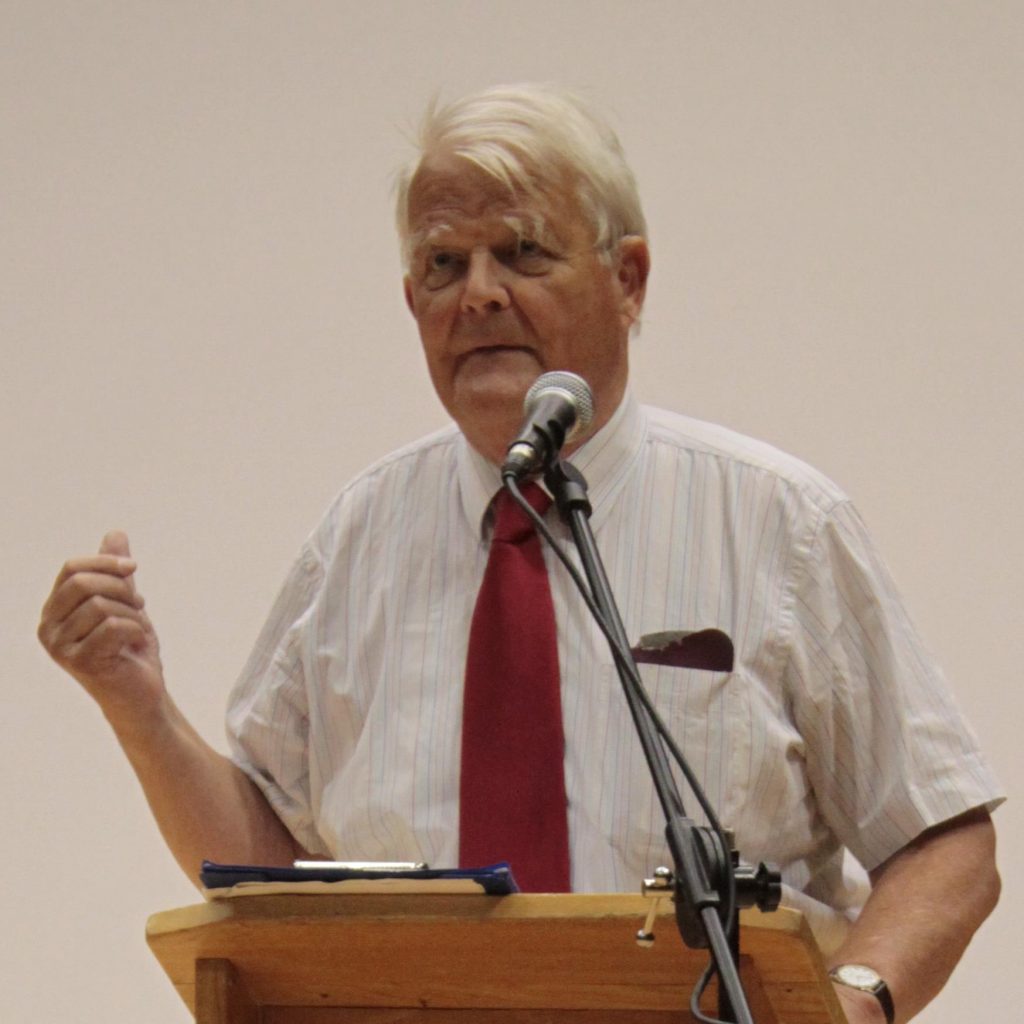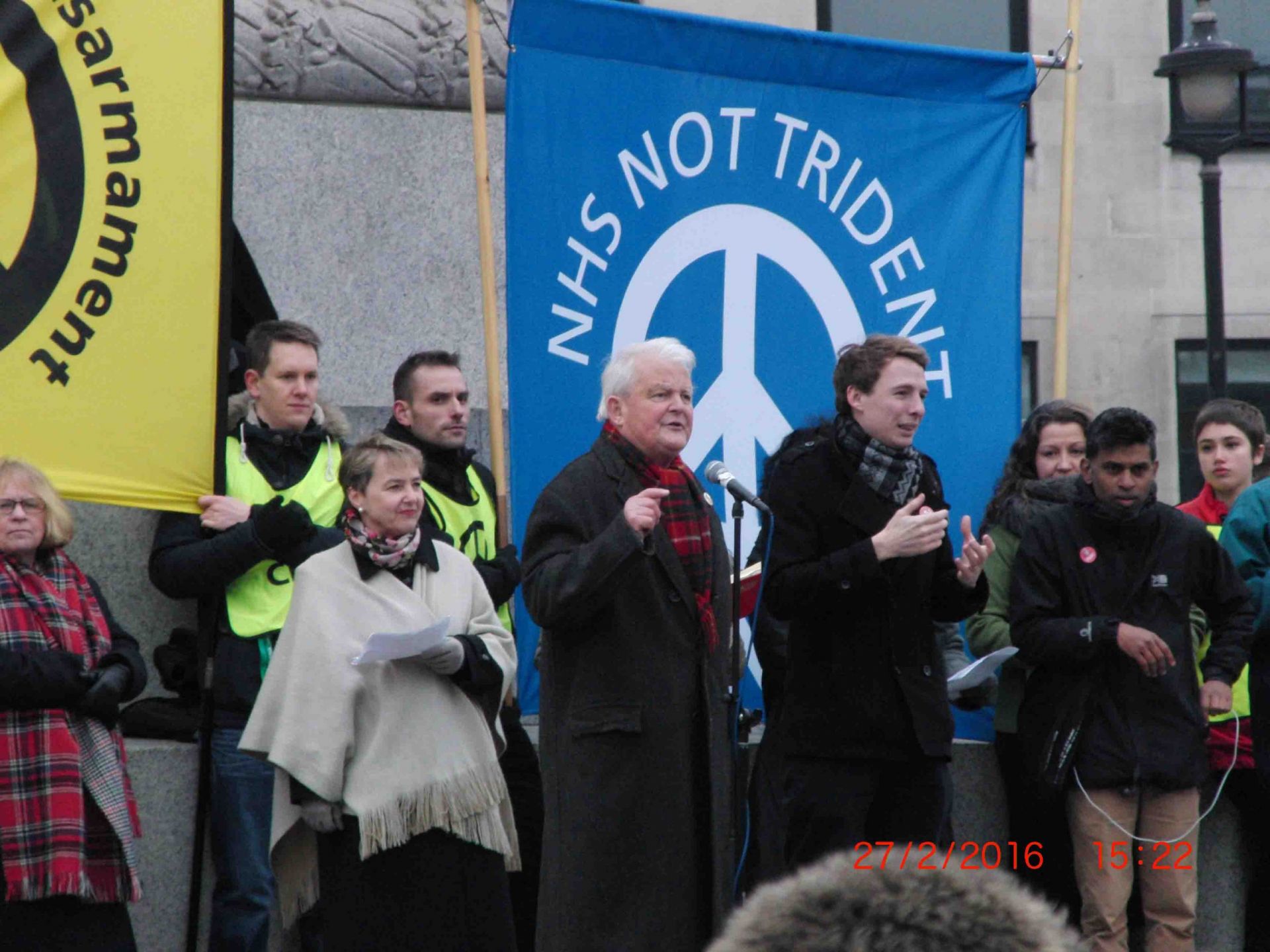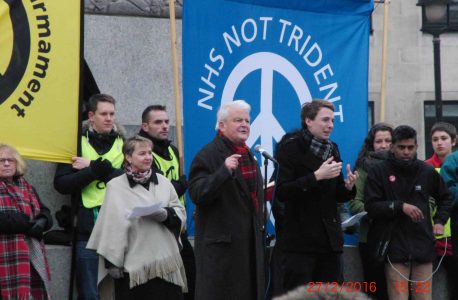In 1999 Bruce Kent was British co-ordinator for the Hague Appeal for Peace, a 10,000-strong international conference in The Hague, which initiated some major campaigns (e.g. against small arms, the use of child soldiers, and to promote peace education). It was this, along with Professor Rotblat’s Nobel acceptance speech calling for an end to war itself, that inspired Bruce Kent to establish in the UK the Movement for the Abolition of War.
Bruce Kent has often acknowledged that his upbringing – the portraits of eight ‘old-boy’ VCs round the school dining room, compulsory cadet corps, followed by National Service in the Royal Tank Regiment – fostered a conventional acceptance of militarism. After ordination as a Catholic priest, his thinking was changed by meeting a Jesuit Archbishop, Thomas Roberts, who said that if it was immoral to use nuclear weapons it was also wrong to threaten to use them: deterrence. Bruce Kent became involved with the Campaign for Nuclear Disarmament (CND) and Pax Christi in the 1960s. A visit to Biafra during the Nigerian civil war became another formative experience. He saw the mass starvation of civilians employed as a weapon of war while the British government supplied arms to the Nigerian government. A few years later Bruce Kent was one of the founders of the Campaign Against the Arms Trade.
As General Secretary of CND Bruce Kent became a well-known spokesperson for disarmament throughout the Cold War years of the 1980s. He travelled the length and breadth of the British Isles, but also visited the USSR, Japan, Australia, New Zealand, the US and many other countries. In 1988 he walked 1000 miles from Warsaw to Brussels (NATO) calling for a united peaceful nuclear-free Europe. From 1985-1992 he succeeded the late Sean MacBride as President of the International Peace Bureau (IPB).
Over six decades, Bruce Kent has campaigned on many issues: support for conscientious objectors, reform and renewal of the United Nations, reconciliation in Northern Ireland, disinvestment from apartheid, the establishment of the International Criminal Court, and adoption of the UN Treaty on the Prohibition of Nuclear Weapons. In 2019 the IPB awarded Bruce Kent the Sean MacBride Prize in recognition of his life’s work for peace and disarmament.




